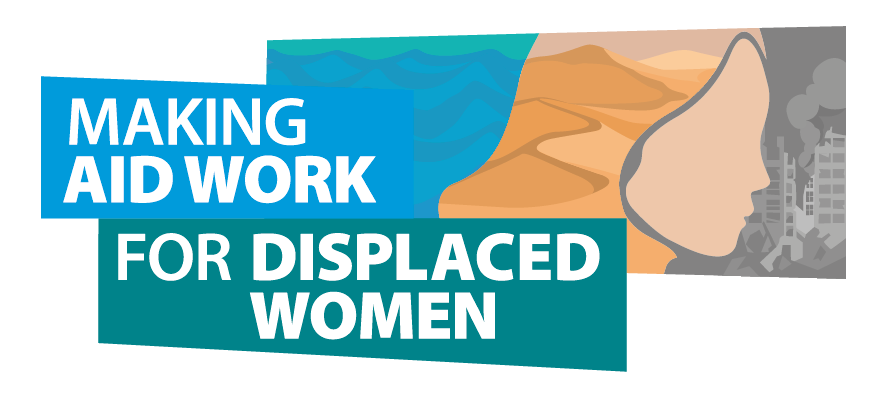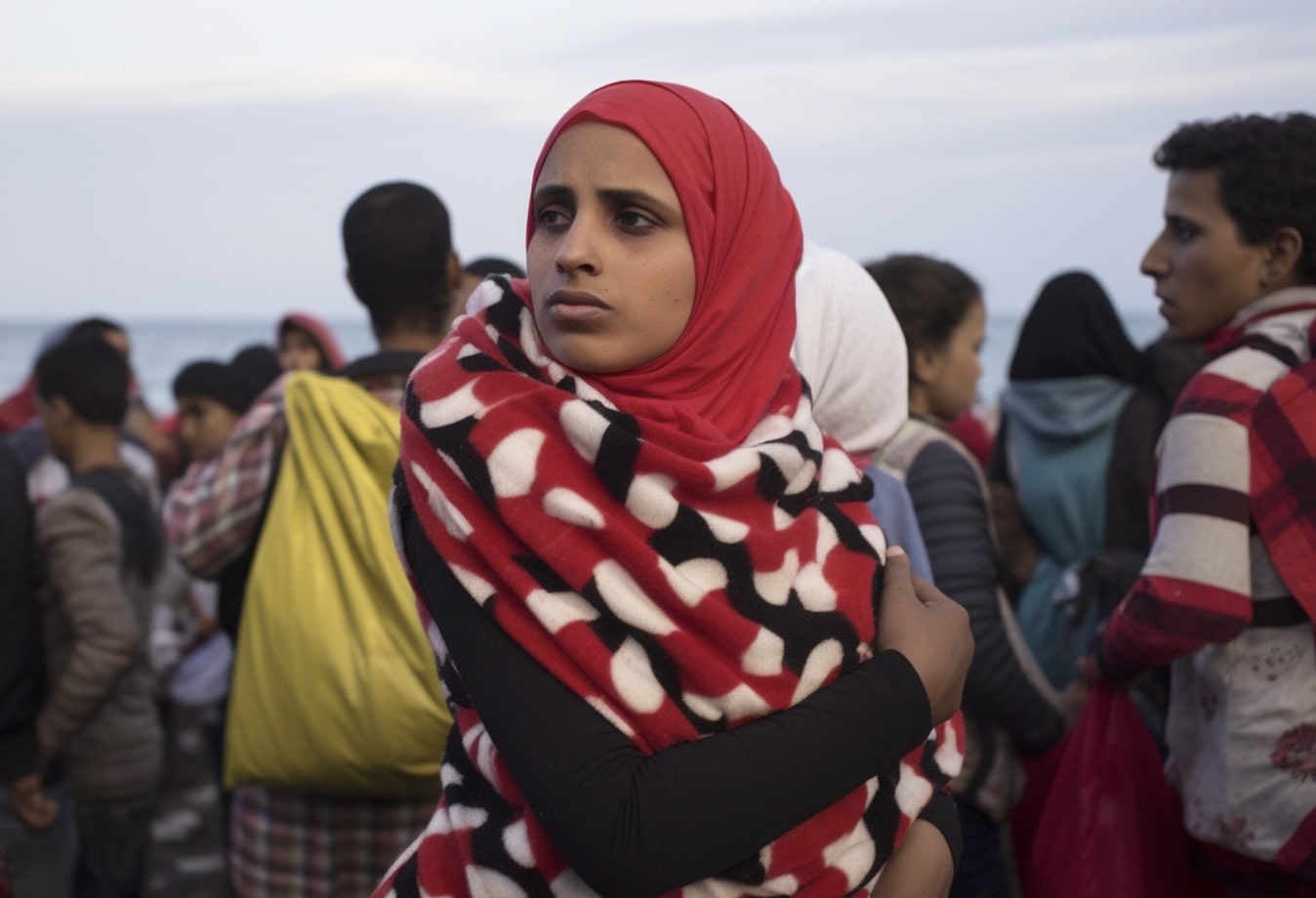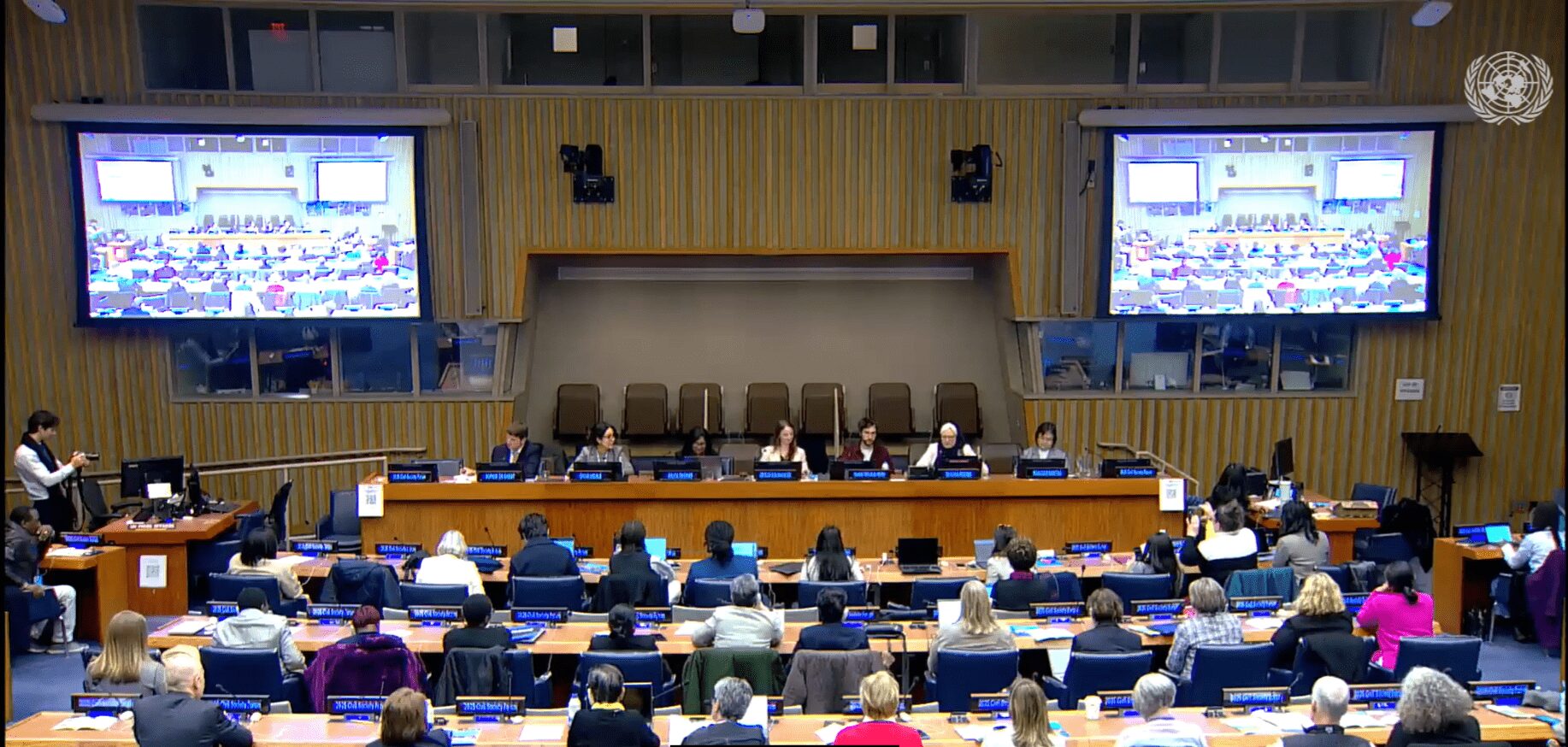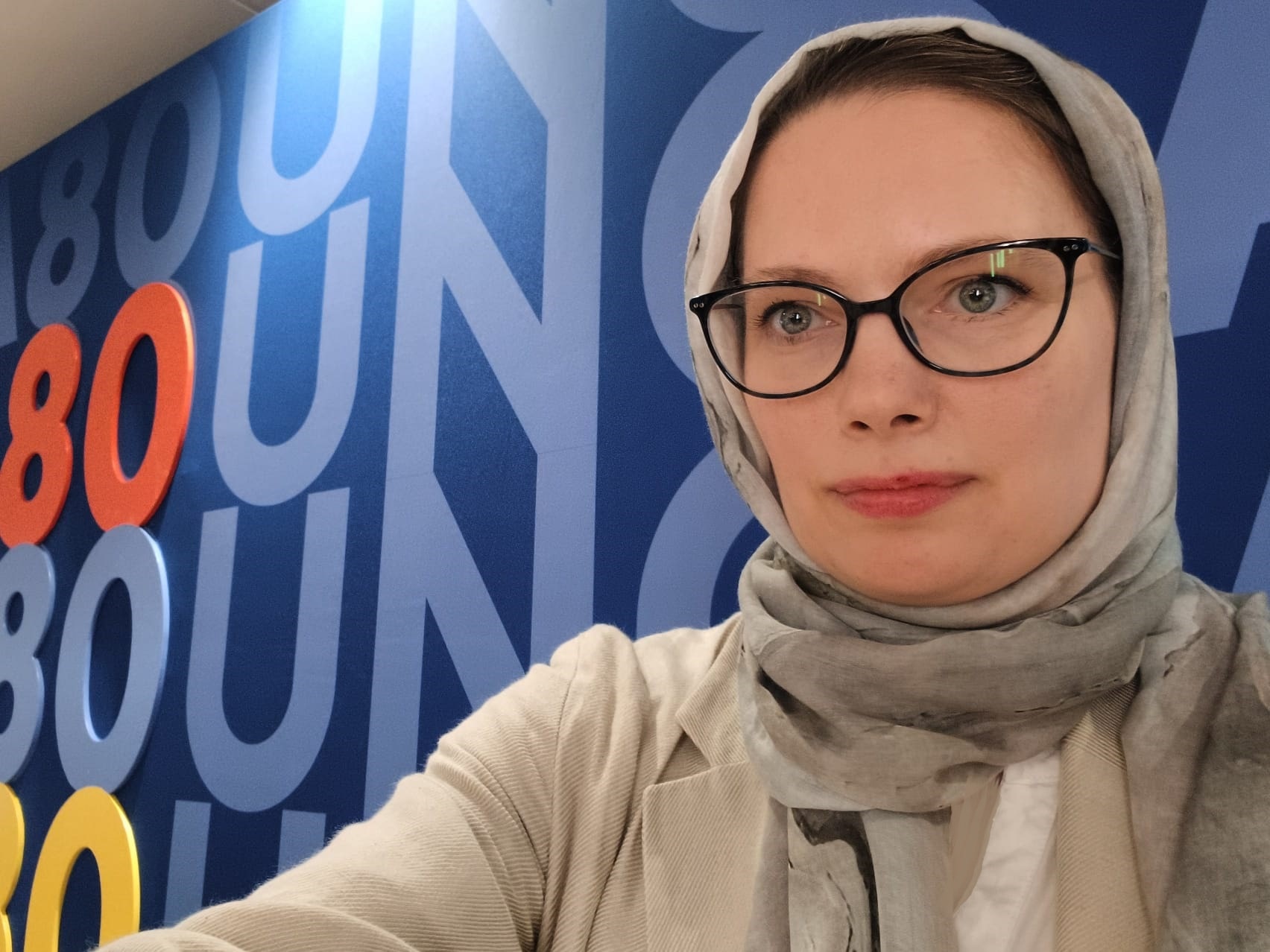
30 September 2025
Dr Sandra Pertek reflects on UNGA80 side events highlighting the growing interest in values and faith driving humanitarianism. As humanitarian aid shrinks, faith-based giving is rising — but women may risk being left behind. Islamic philanthropy, particularly zakat, has emerged as a vital lifeline for displaced people. But without women’s leadership and perspectives, this growing faith in humanitarianism risks reproducing the very exclusions it seeks to overcome.
Upon arrival to New York, I was welcomed by a customs officer who genuinely cared, acknowledged me as a Muslim woman and encouraged my efforts to attend UNGA events on behalf of displaced women from Muslim nations—often overlooked while conflict-affected countries receive privileged attention. Ironically, the person ahead of me in line had just arrived from Ukraine. The officer wished other nations like Sudanese or Palestinians received similar compassionate attention.
As world leaders met to consider unprecedented global crises, conflicting voices emerged at UNGA80 — some declaring multilateralism had failed, others defending it as the continued solution and a reaffirmation of faith in the UN. Many turned to alternative visions of ‘saving the world’ from rising insecurities, highlighting value- and mission-driven groups and movements rooted in universal principles and human dignity.
Faith-Based Engagement at UNGA80
On 25 September 2025, I attended two significant events organised by UN agencies focused on refugees and migration. The first was IOM’s session titled ‘Faith against Human Trafficking and Modern Slavery,’ part of Foreign Policy’s Faith in Freedom Forum called ‘The Power of Purpose.’ The second was UNHCR’s ‘Faith in Action: Towards a Sustainable Refugee Response.’ The IOM event offered rather a well-balanced dialogue between UN leaders and Islamic philanthropists, including Tarig Cheema from the Muslim Donors Forum. In contrast, the UNHCR event primarily celebrated existing partnerships with FBOs. However yet these efforts sometimes reflected ‘humanitarian masculinities,’ with rather male-dominated panels despite the presence of capable women leaders from Muslim agencies.
In each event, Filippo Grandi and Amy Pope, heads of UNHCR and IOM, reaffirmed that FBOs are often the first to arrive in crises—and are frequently present even before crises strike. Many FBOs are already deeply engaged with refugee women at the grassroots level. They discussed how the UN leverages partnerships with non-traditional actors besides governments, such as the FBOs (which conversely to the non-traditional description of actors in which they are often categorised, can be quite traditional).
Resource Mobilisation and Zakat Potential
Over the years, we witness a dramatic shift in religious engagement, what was once characterised by religious avoidance and marginalisation has now shifted into rapid engagement to meet dire humanitarian needs. In these events, I witnessed bold statements calling for immediate partnerships with FBOs to alleviate human suffering. But it is not a sudden move, it is a well fought-for cause by UN staff (e.g. Islamic philanthropy teams) involved in mobilising resources, who believe in the transformative potential of faith, despite the reluctance of financial departments unfamiliar with shariah-compliant giving. Earlier efforts of religious engagement included a range of initiatives such as ‘Welcoming the stranger’ and the Multi-Religious Council of Leaders by UNHCR.
In the era of serious fiscal challenges in humanitarian systems, for example, due to aid budget cuts (recent US Aid, earlier DFID merger with FCO), the capacity of UNHCR decreased 60%. “With less, [we] do less, but we do it very well with impact”, said Filippo Grandi, addressing event participants. The need for innovative finance solutions has never been greater; the looming reality of conflict requires to keep assistance to refugees going.
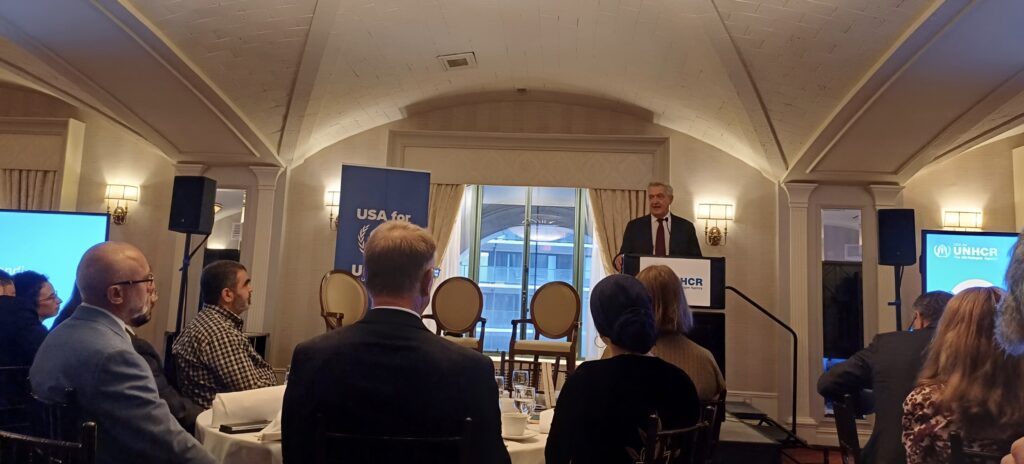
Budget cuts puts the UNHCR under massive pressure to generate resources, elsewhere unavailable. This shift is reflected in slogans like ‘Faith in Action,’ as UN agencies move towards adopting faith as an integral financing mechanism. But for UNHCR it has been a journey since 2018 with Refugee Zakat Fund open then. With an estimated annual trillion dollars of zakatable wealth globally (Zakat being a religious duty on Muslims earning above a threshold, often described as a form of social tax), it is unsurprising that international agencies seek to access a share of these resources. Such efforts, however, sometimes prompt questions within Muslim communities and relief agencies about the legitimacy of secular actors using religious resources.
Women, Conflict, and beyond Survivor-Centred Approaches
Similarly, IOM’s Amy Pope highlighted FBOs are essential to unlocking solutions to ending trafficking and modern slavery and supporting survivor-centred approaches. However many civil society organisations may lack capacity to address these concerns. IOM’s partner – UK-based Muslim Charity – which recently donated a million pounds for anti-trafficking projects in Libya, represented by Irfan Rajput, explained how FBOs can mobilise resources and advocacy to confront human rights violations, such as modern slavery.
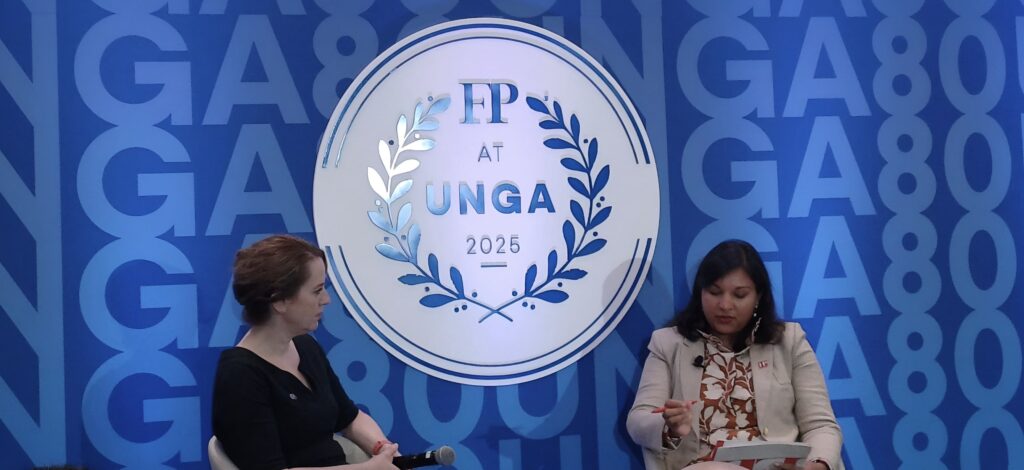
UN Women’s Director, Sarah Hendriks, spoke about the increasing number of women living in conflict and in close proximity to conflict zones. She took the conversation a step further – advancing survivor-centred approaches for forcibly displaced women to prioritise leadership, agency, and resilience-building within affected communities. She said “shift from relief to resilience models” is needed as part of humanitarian reset strategies, which should put women at the center.
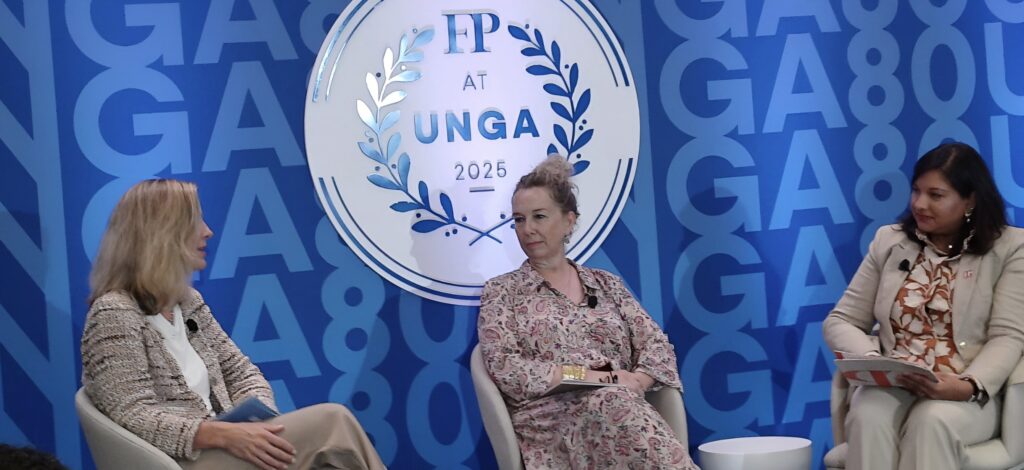
The Future of Humanitarianism and Multilateralism
Panelists across the two events called for improved coordination of Islamic philanthropy actors to ensure best impact and investment of funds. However, the lack of women’s voices in Muslim agencies and on panels is striking — female talent is present, but too rarely heard. While Zakat was recognised as a highly regulated practice with predefined categories in the Quran, there is a need to link donors with viable solutions and technical expertise. Clearly FBOs are integral part of the humanitarian landscape.
In a world rethinking humanitarianism and multilateralism, faith-based resources offer a transformative opportunity. While recognising the value of faith in foreign assistance—from global frameworks to local solutions—ongoing dialogue and consensus-building are needed to reshape the culture of giving in ways that enable marginalised communities to thrive.
In sum, faith in humanitarianism is gaining strength as aid budgets weaken — but its transformative potential depends on who is included. Embedding women’s leadership in faith-based responses is not optional; it is the test of whether this shift will deliver justice and dignity for displaced people regardless of their background.
